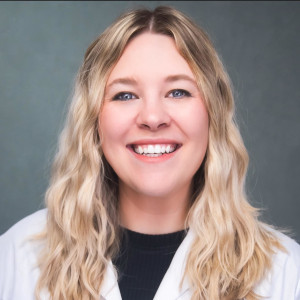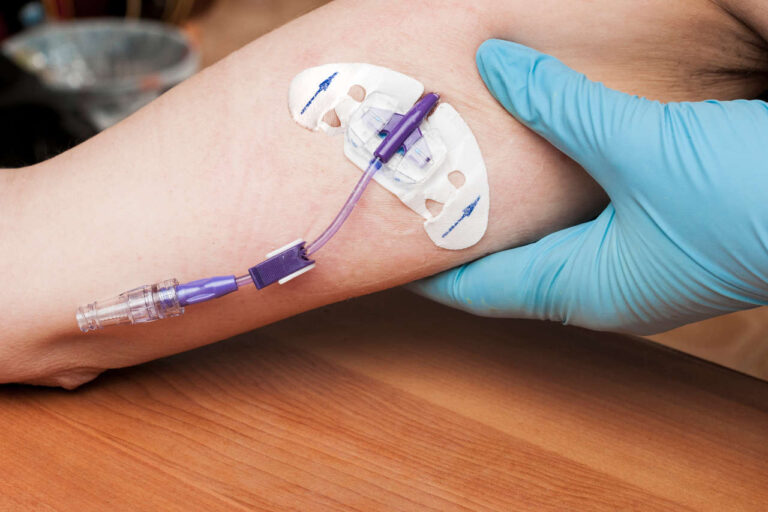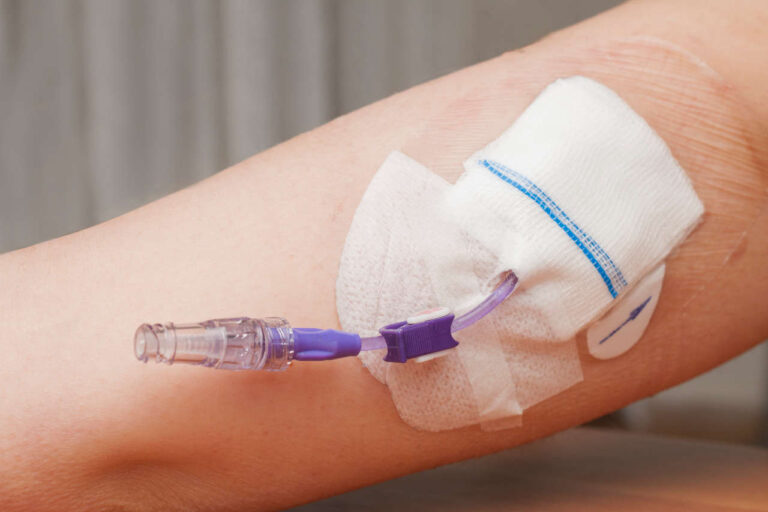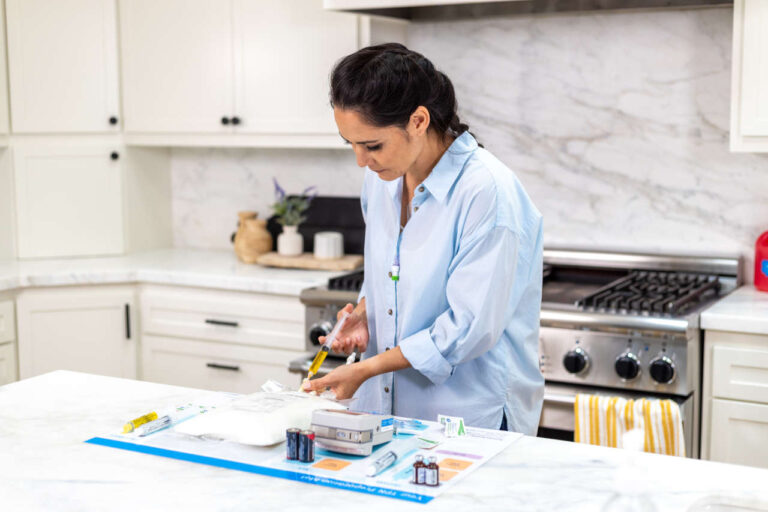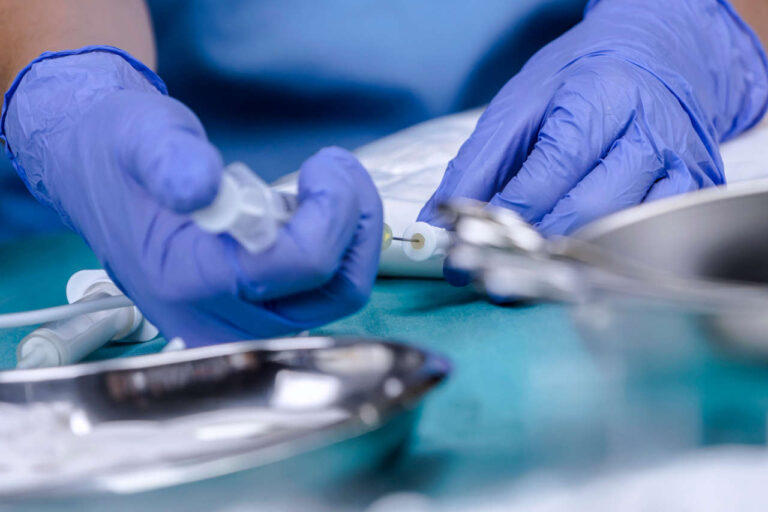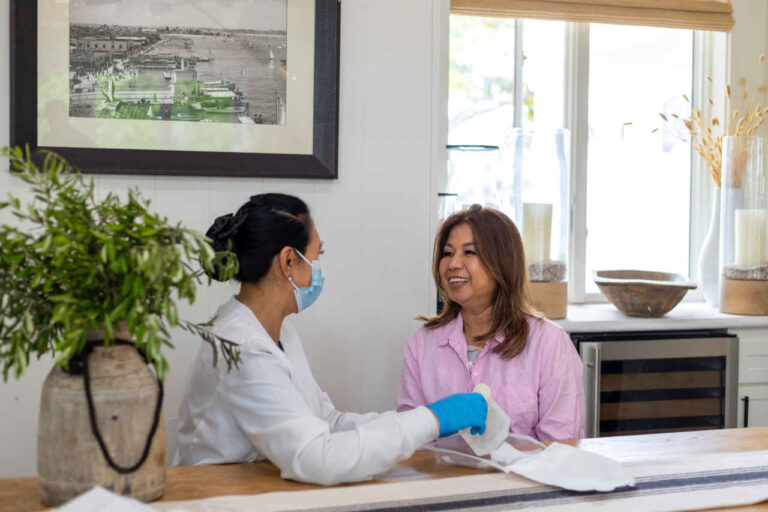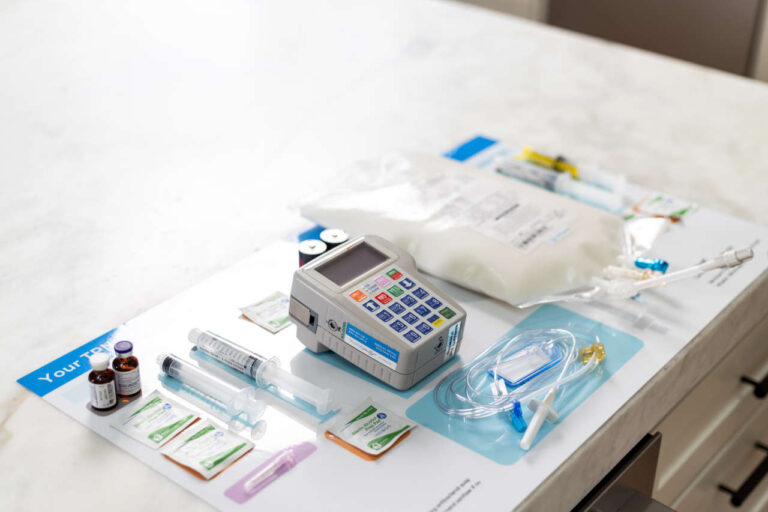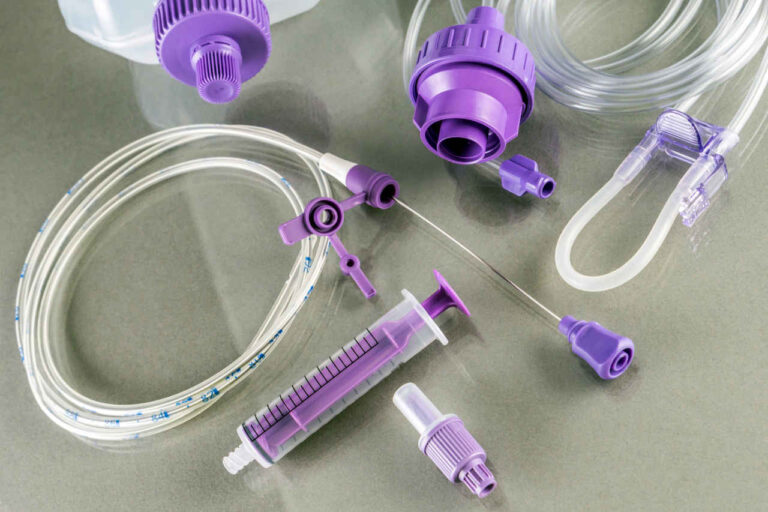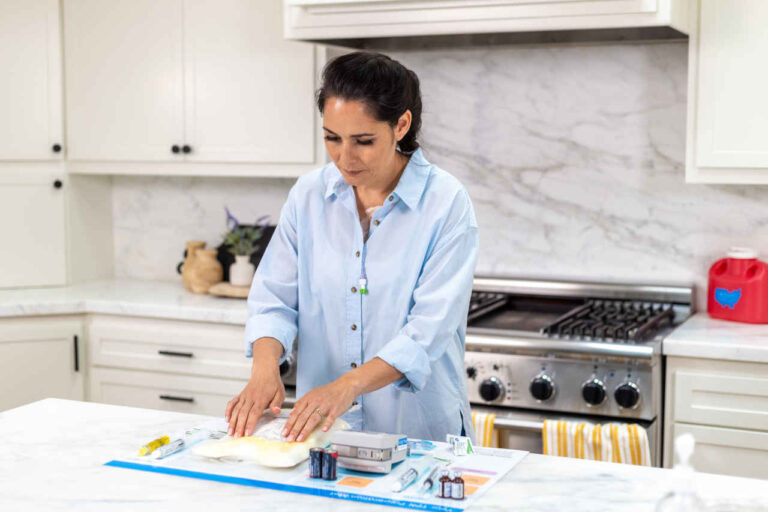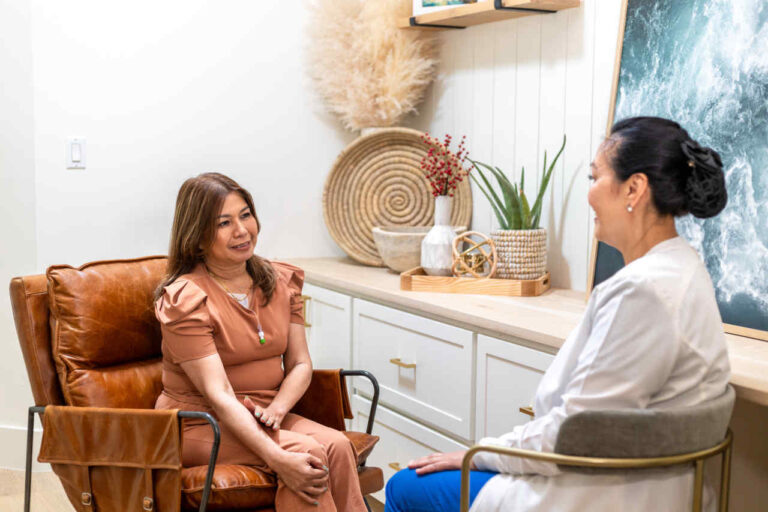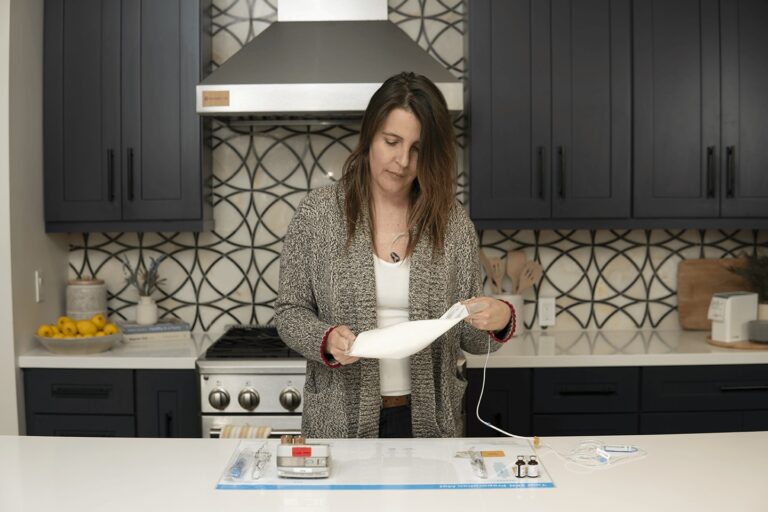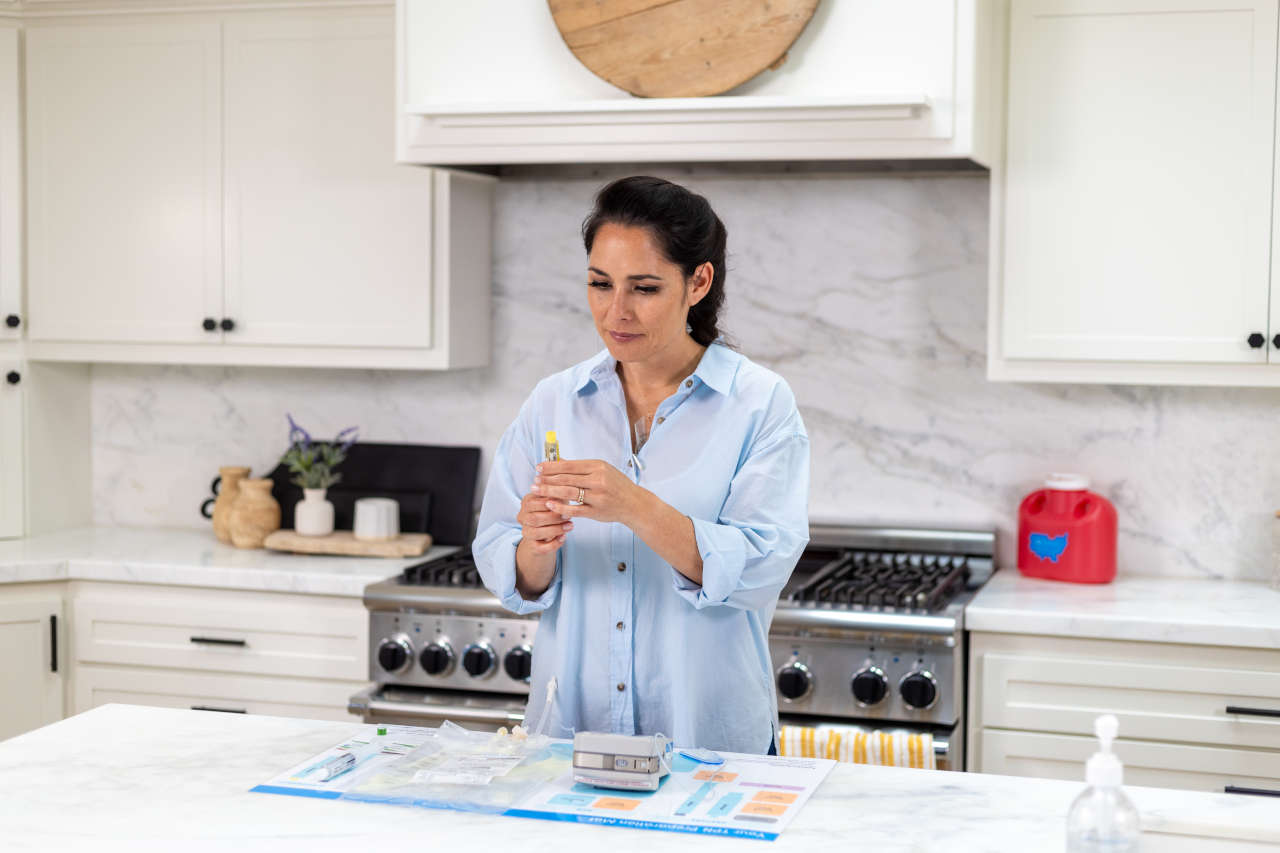
Receiving total parenteral nutrition (TPN) at home can be both a challenging and transformative experience for some patients who require this form of nutritional support. TPN can be used in chronic diseases such as ulcerative colitis, Crohn’s disease, short bowel syndrome, or ischemic bowel disease to assist patients who may have problems digesting foods regularly. With these gastrointestinal disorders, patients are unable to get adequate nutrition and consequently rely on TPN therapy on a long-term or permanent basis.
Ask About TPN Home Infusion
In recent years, there has been a tremendous shift in the number of patients requiring TPN therapy at home rather than in hospital settings. In fact, around 40,000 U.S. patients currently receive TPN treatment in the comfort of their own homes.
Though receiving TPN infusions at home seems a cost-effective and more convenient way to get vital nutrients, it also involves some challenges and risks for patients if not appropriately managed.
In this article, we will discuss some potential benefits and risks you may experience while living with TPN at home and some tips to help you manage TPN infusions.
Understanding Home-Total Parenteral Nutrition (HPN)
Total parenteral nutrition is an essential and life-saving therapy for patients who cannot obtain sufficient vital nutrients due to gastrointestinal dysfunction. This therapy infuses essential nutrients into the patient’s bloodstream through an IV.
In some cases, TPN is also opted for when traditional nutritional therapies (e.g., enteral nutrition/tube feeding) are either unfeasible or contraindicated.
Nowadays, patients who require TPN for the long term often choose home-based TPN therapy. This approach helps them to avoid the cost of hospital stays and transport expenses.
Potential Benefits of Living With TPN at Home
Independence and Improved Quality of Life
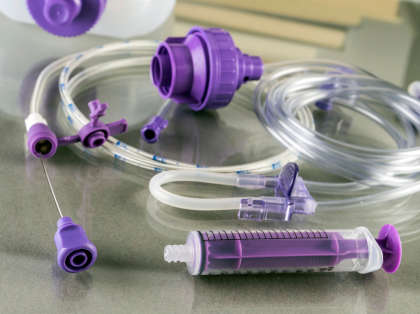 Living with TPN at home does not mean you are stuck at home. You can easily manage your nutrition independently or with the help of your caregiver. You can still lead a busy lifestyle. For instance, patients on total parenteral nutrition can still travel for business purposes as well as for social events and vacations. It just takes extra preparation, with guidance and support from your physician or medical team as well as your pharmacist.
Living with TPN at home does not mean you are stuck at home. You can easily manage your nutrition independently or with the help of your caregiver. You can still lead a busy lifestyle. For instance, patients on total parenteral nutrition can still travel for business purposes as well as for social events and vacations. It just takes extra preparation, with guidance and support from your physician or medical team as well as your pharmacist.
In fact, this transitional approach has significantly improved the quality of life of many patients.
Familiar Environment
Patients who receive TPN at home benefit from being in comfortable, familiar surroundings. In addition to reducing stress, this can promote mental and emotional well-being. The total therapeutic experience might be enhanced by being close to loved ones.
Personalized Care and Cost-Effectiveness
For many patients, home-based TPN is more affordable than prolonged hospital stays and medical expenses. With home-based TPN, the financial burden that chronic illnesses frequently place on people and their families is lessened.
Healthcare professionals also adjust the TPN formulation according to the patient’s needs to ensure that patients receive optimal nutrition at home. This personalized care supports better overall health outcomes and increases the treatment effectiveness.
Challenges You May Face While Living With TPN at Home
Handling and Preparation of TPN Infusion
If you’re receiving TPN at home for the first time, it may be challenging to initially handle the technical aspects of TPN infusion. Generally, TPN-trained nurses educate the patient or their caregiver about handling, preparing, and administering the TPN mixture. However, patients still oftentimes find it challenging in the beginning.
Sterility and Infection Risk
Another challenge you may experience while living with TPN at home is the increased risk of infection. Unlike in the hospital, where the TPN mixture is prepared and administered carefully in a sterile environment, receiving TPN at home may increase your risk of infections due to poor hygiene.
Therefore, you need to follow strict hygiene practices during the preparation and administration of TPN to minimize the risk of potentially serious complications or catheter-related infections.
Speak to a Specialist About Copay Assistance
Tips To Manage TPN Infusion at Home
Here are some tips that you can follow to manage TPN infusions at home:
- Ensure you or your caregiver gets comprehensive training and follow the provided instruction manuals about handling, preparing, and administering TPN mixture from your healthcare provider.
- When you start your TPN infusion cycle, ensure the TPN solution bag is in good condition, and there are no solid cloudy particles.
- Before preparing the solution, wash your hands with warm water and soap, and clean your space with alcohol wipes to avoid the risk of infection.
- Prepare the TPN mixture according to the amount prescribed by your healthcare provider. Be sure to bring the TPN bag to room temperature before use to decrease the possibility of side effects.
- Carefully insert the IV tube into your catheter and IV infusion pump to avoid the risk of embolism.
- Set your infusion at the prescribed rate and duration as instructed by your healthcare provider, and make sure to prime the IV tubing before starting.
- Typically, the TPN infusion takes 10 – 12 hours to complete. You can schedule your infusion cycle according to your daily routine, such as taking it in the morning or at night.
- Regularly monitor the infusion site and your PICC line before administering the TPN infusion.
- Seek immediate medical attention if you see any severe redness or swelling at the site of injection or experience any side effects like diarrhea, fatigue, nausea, or headache.
- Keep in touch with your healthcare provider or attend follow-up appointments to discuss personalized guidance on managing TPN at home and assess your treatment’s effectiveness.
Though home-based TPN comes with some challenges and requires adjustment to your daily activities and routine, with the right mindset, careful management skills, and healthcare guidance, you can enjoy your life while undergoing the treatment process at home.
REFERENCES:
- Kim, K. S. (2013). Strategy for activation of home total parenteral nutrition. Journal of Clinical Nutrition, 5(3), 96–101. https://doi.org/10.15747/jcn.2013.5.3.96
- Liu, M., Laskaratos, F., Bennell, J., Chen, J., Toumpanakis, C., Mandair, D., & Caplin, M. (2020). Home Total Parenteral Nutrition for Intestinal Failure in Patients with Advanced Small Intestinal Neuroendocrine Neoplasms. Nutrition and Cancer, 73(9), 1638–1643. https://doi.org/10.1080/01635581.2020.1810713
- Home Total Parenteral Nutrition (TPN). Memorial Sloan Kettering Cancer Center. https://www.mskcc.org/cancer-care/patient-education/home-total-parenteral-nutrition
- Winkler, M. F., & Guenter, P. (2014). Long-Term home parenteral nutrition. Journal of Infusion Nursing, 37(5), 389–395. https://doi.org/10.1097/nan.0000000000000068
